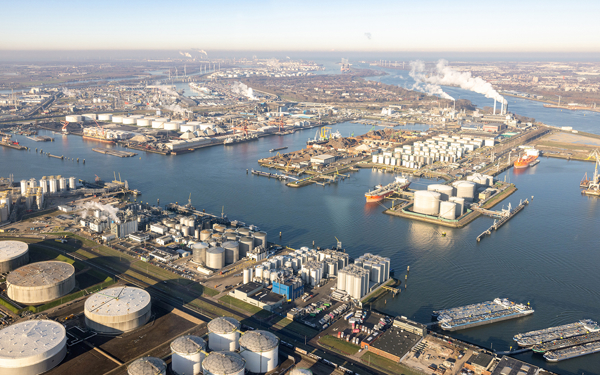Current global climate investment is falling short of targets
The Paris climate agreement sets a clear limit for global warming, namely a maximum of 2°C or preferably 1.5°C relative to pre-industrial levels. Achieving this objective requires large-scale investment in energy services and efforts to increase sustainability in manufacturing, transport, agriculture and buildings. So far, however, such investment has been insufficient across the globe. In the Netherlands, too, current efforts will fail to reach the climate targets set. The slower the pace of the energy transition is, the greater the likelihood of abrupt adjustments, and abrupt changes can damage the economy and the financial sector. This is why we advocate accelerating and scaling up climate investment. While most of such investment will need to be made by private parties, such as businesses and households, it is up to governments to create favourable conditions. The new cabinet and international standard setters could do so by deploying a mix of pricing, supporting and regulating. Each of these policy instruments are briefly discussed below.
Emissions pricing
The main impediment to scaling up private climate investment is the fact that greenhouse gas emissions such as CO2 are often underpriced. This reduces the attractiveness of a business case for climate investment, and consequently private parties lack the incentives to make the transition. Correct pricing assigns the costs of harmful effects to the party that is responsible for them. Currently, however, polluting sectors such as manufacturing and agriculture, pay relatively little for their emissions. The average effective emission tax, which includes energy taxes, is currently below EUR 30 per tonne of CO2 emissions in many countries. To achieve the climate targets this should be three or four times that amount. On top of this, polluting businesses benefit from subsidies and reduced energy taxes. The strongest incentives that governments can provide to make the wider economy more sustainable, therefore, are improved pricing of climate and environmental damage and the reduction of harmful subsidies.
Carbon pricing will preferably be coordinated at international and European level to protect competitive positions and limit emission leakages. The European emissions trading system (ETS) must be strengthened. This can be done, for example, by lowering emissions ceilings and further refining the market stability mechanism. The ETS could also be expanded to include more sectors, such as mobility and the built environment. In addition, taxes at national level should be aligned more closely with the extent of pollution. Large high-emission businesses in the Netherlands pay considerably less energy tax than small and medium-sized enterprises, because large energy consumers are given tax rebates. It is also necessary to phase out European and national subsidy schemes that harm the climate, such as agriculture and fossil fuel subsidies. According to the Ministry of Economic Affairs and Climate Policy, annual fossil fuel subsidies in the Netherlands total at least EUR 4.5 billion. The bulk of these are excise duty exemptions for airline carriers (EUR 2.5 billion) and shipping companies (EUR 1.5 billion). Phasing out such subsidies will require close international coordination. Additionally, some sectors may need government support to navigate the transition process.
Supporting sustainable technologies and infrastructure
Climate investment in the Netherlands is also impeded because there is a coordination problem between investors and financiers. This is where the government must step in to provide support and coordination. For example, manufacturing and energy services are facing a ‘chicken and egg’ problem of infrastructure investment, causing manufacturing industries and energy providers to wait and see if the other one takes the first step. This requires a stronger coordinating role from the government, allowing supply and demand to be matched more closely in terms of planning, financing and installation of the required infrastructure. Government involvement is also required to support innovative climate investment. In many sectors, the transition hinges on successful technological innovations, but in their early stages these are often less competitive than fossil alternatives. It is important that governments do more to promote innovative investment and its financing, through subsidies, co-financing and guarantees. An important precondition for this is consistent and reliable government policy, so that there is sufficient certainty for private investors to provide the necessary financing over the longer term. A further precondition is that government support for climate investment must not jeopardise public finances. Improved pricing of emissions and the reduction of fossil subsidies helps create budget space to support climate investment through subsidies, guarantees and co-financing.
Regulating capital markets, climate reporting and financial institutions
A further impediment to climate investment is the mismatch between their risk profile and the current supply of private finance. The energy transition requires massive investment in new, often unproven sustainable technologies with high risk characteristics. This matches the risk appetite of private equity and venture capital funds, but these have a limited presence in Europe. Crucially, equity financing must be promoted by reducing tax incentives for debt finance. Speeding up the creation of the European capital markets union will contribute to this by promoting equity financing and safe innovative financing structures.
Another cause of the shortfall in climate investment is the fact that established carbon intensive companies are not given adequate incentives to become more sustainable when they raise finance. This is partly due to a lack of transparency about climate-related risks of these companies. Binding global climate accounting standards are needed to increase the reliability and comparability of data and related indicators for measuring climate related risk of investment portfolios. When financiers can assess the climate related risks of their investment, they can more accurately gauge the risk premium they require. Similarly, central banks must be transparent about the climate-related risks in their own balance sheets. Lastly, both financial institutions and supervisors need to integrate climate-related risks in their risk frameworks.




